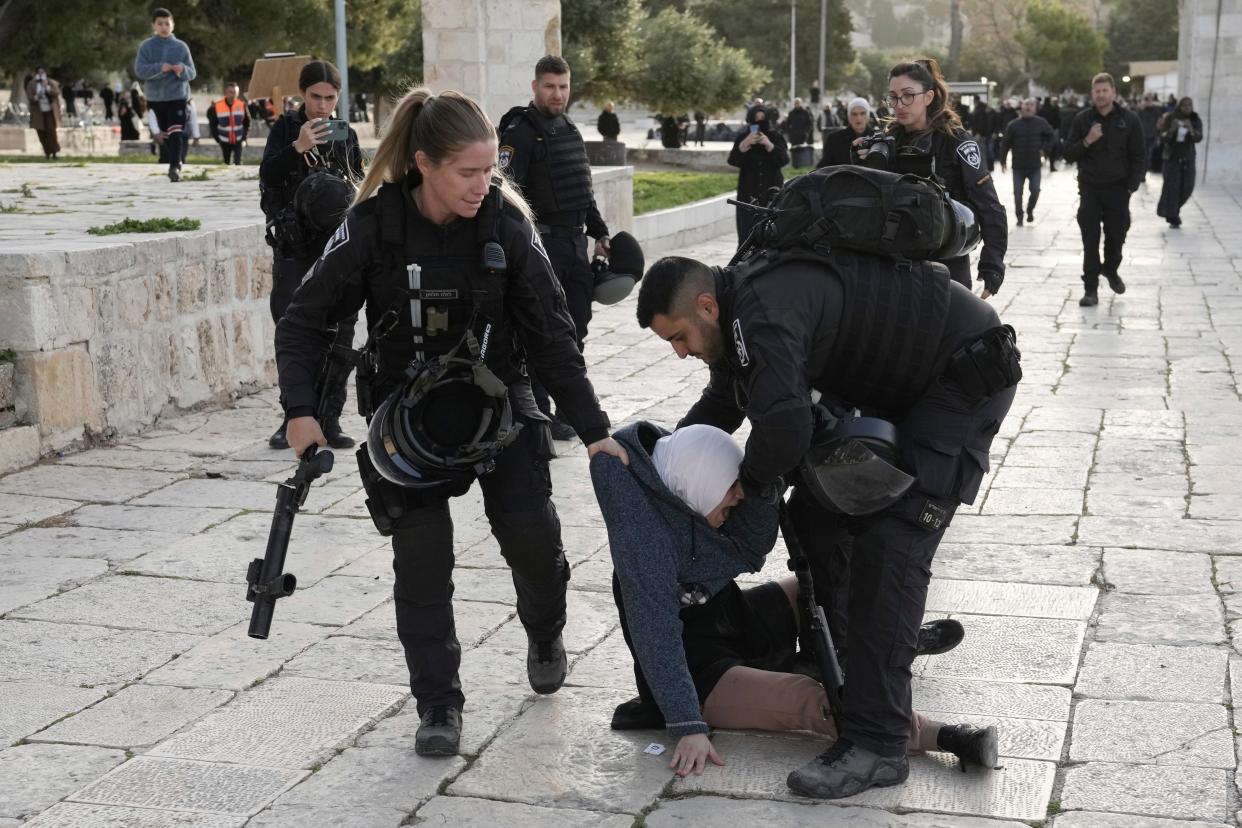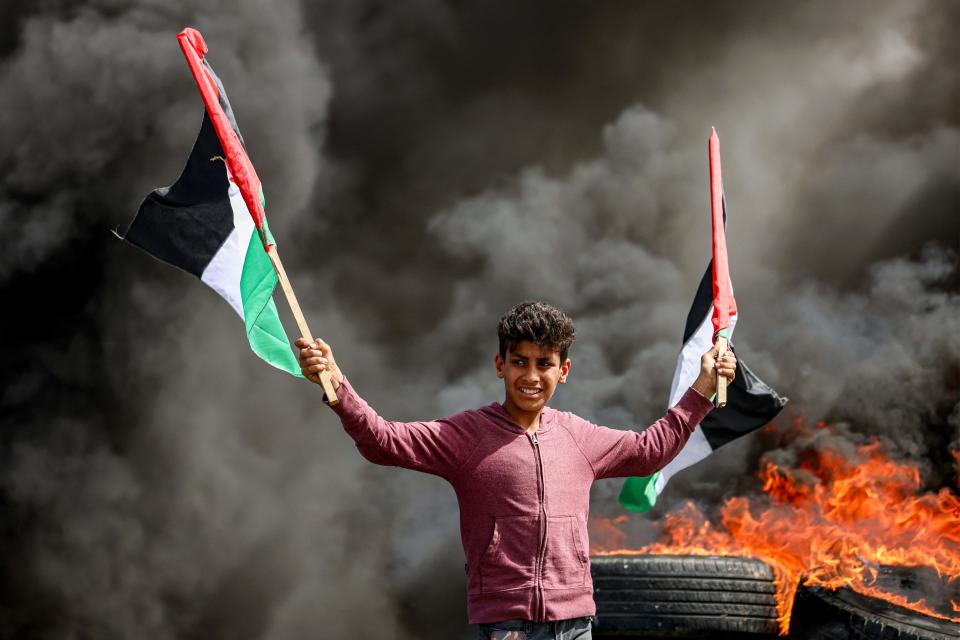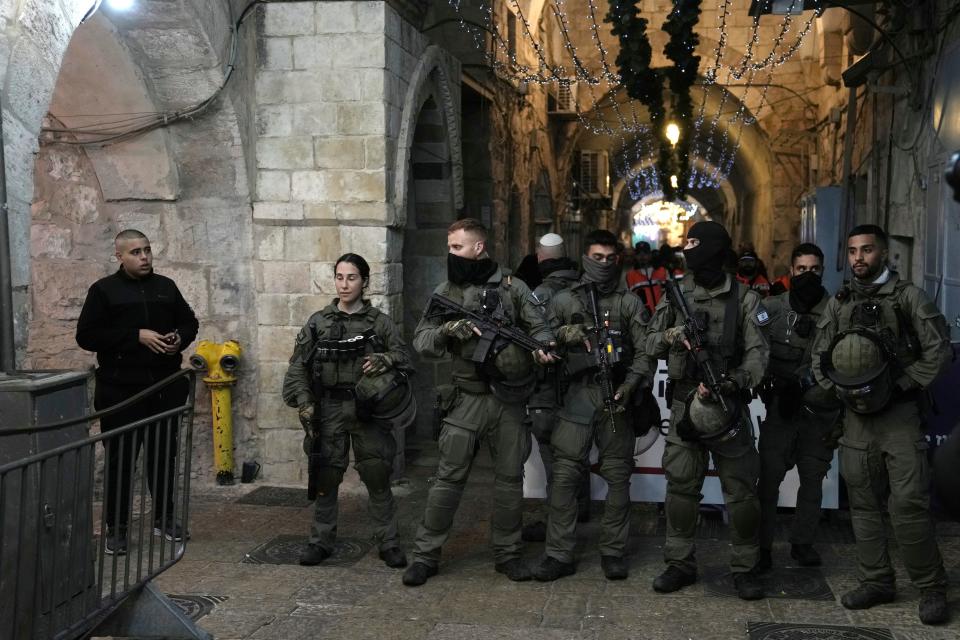Opinion: Interfaith groups must keep pushing for peace

Last week, our ally Dr. Samina Sohail noted (“Faith community must condemn raids at Jerusalem's Al-Aqsa Mosque”) how this spring marked coinciding holidays for the Abrahamic religions. As she explained, these celebrations cause all three communities to share moments of reflection.
One could hardly ask for a more organic interfaith bridge − a good thing, because as a minority group, Jewish Americans recognize the need for interfaith dialogue and cultural exchange. We find hope in how these interactions break down barriers, invite us to empathize with diverse stories, and promote shared values of human decency.
Lessons learned in past years have taught us time and again that interfaith and intergroup fellows have more in common with one another than not. However, in response to Dr. Sohail’s April 8 column, it seems necessary now to heed important disagreements.
Most of Dr. Sohail’s column should draw nothing short of praise from any good-hearted person, including from the majority of Jews. As active participants in Jewish and congregational life, imagining the experience − and indignity − of a person violently interrupted in their place of worship is difficult. It is soul-crushing when incidents abroad have such a profound impact on us locally, as they all too often do.
Reasonable observers can reach different conclusions when studying the events at the Temple Mount Dr. Sohail chronicled. Not so much in visceral outrage to the events − there, we agree. However, taken without context, there is paltry information from which to learn. Learning requires a foundation of objectivity, ensuring that all perspectives are known and considered when seeking truth.

Of course, neither of us is inclined to agree with every action the Israeli government takes − critique of governments isn’t a bug of liberal democracy, it’s a feature. And yet, for good reason, it should seem implausible that the Israeli security forces entered Al-Aqsa for no reason. Doing so may have been a mistake, but it wasn’t without provocation.
The larger context that precipitated the painful images we, Dr. Sohail, and the rest of the world saw was the following: A history of terror activity elevating during Ramadan, instigated from the Temple Mount, including Al-Aqsa Mosque. It is clear that this latest skirmish, too, wasn’t entirely unprompted by extremist activity. Stockpiles of fireworks, stones and weapons in the mosque suggest preparations for violence and disruption. The fracas arose from escalation between police officers and violent extremists − tragically, with innocent worshipers caught in between.
Despite all this, we still join with Dr. Sohail in her steadfast desire to see this tit-for-tat violence end. We agree with her that no good is obtained by Jews, Muslims, or anyone else violating holy places or worshipers.
The conclusion seems to be the following: Once more, deep-rooted hatred is liable to sabotage efforts for peace. Therefore, it is incumbent on each of us to call to account those who undermine interfaith relationships, shared society efforts, and prospects for peace. Each side of the conflict has those who feed off institutionalized hatred, and they are real friends to none of us.

If we’re going to talk about this conflict and its vast implications, let’s lean into the spirit and values of interfaith relations. Let’s work to uncover how we might advance opportunities for collaboration and coexistence between Israelis and Arabs. As Americans of faith who feel a connection to the people, land, and events unfolding in Jerusalem, it’s time that our quest for peace moves us into a reflection of how we’re contributing to its prospects.
Despite our differences − perhaps even because of them − we are here with you as partners and friends, optimistic that we can create a better future for our children.
Rabbi Ari Ballaban is director of the Jewish Community Relations Council. Justin Kirschner is the regional director of American Jewish Committee Cincinnati.

This article originally appeared on Cincinnati Enquirer: Opinion: Interfaith groups must keep pushing for peace

